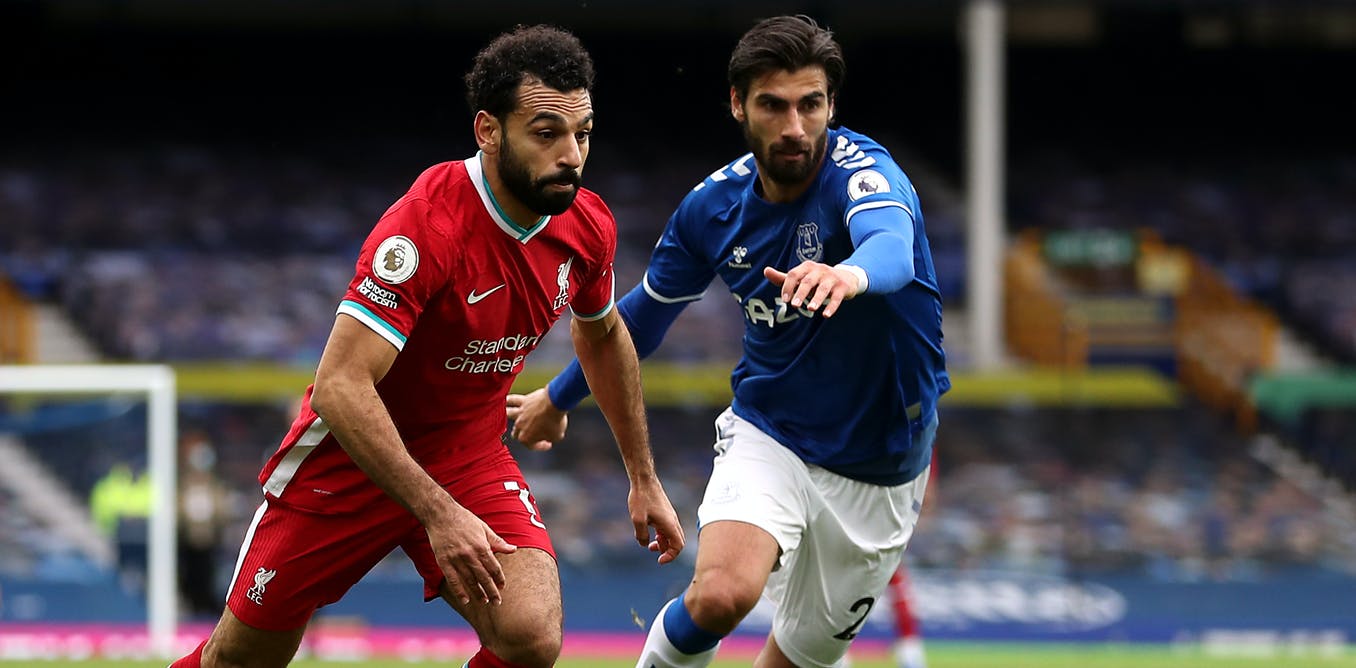Not every football club is going under – here’s how some are improving financial results

COVID-19 has proven itself a devastating opponent for professional sport around the world. Major events have been cancelled or postponed, and the financial security of many athletes and teams remains bleak.
In football, for example, there are fears that even the top flight clubs in Europe could lose €4 billion over the next two years. Meanwhile, lower league clubs are said to be facing an existential threat.
The outlook remains worryingly uncertain. When will paying spectators return to the terraces and fill the stadiums again? To what extent will the vital investment of media companies and corporate sponsors – themselves facing pandemic related losses – be reduced?
To begin with, clubs will be concerned with managing short-term financial worries, perhaps by aiming to reduce spending on player transfers and wages. But there is also an urgent need to think about the longer-term implications for economic survival. Our research indicates that one strategy football clubs should consider is diversification.
The idea behind diversification is simple. Instead of putting all of your financial eggs in one basket, you spread your risk among different economic sectors.
Currently, the fate of most football clubs depends almost entirely on their sporting performance. If the team mostly wins, the financial situation improves, and if it mostly loses, the situation gets worse. Individual games can be economically devastating if they mean missing out on qualification for a lucrative tournament or relegation to a lower division.
Risk diversification can at least mitigate these sometimes dramatic effects by expanding either into new products – beyond replica kits and merchandise – or geographic regions.
Some clubs have already begun to explore this strategy. Arsenal in the UK, and Barcelona in Spain have set up “innovation hubs”, which collaborate with technology startups, for example, to explore new digital fan experiences using artificial intelligence and augmented reality.
Others have diversified by building a portfolio across different sports. The Fenway Sports Group for instance, owners of Liverpool FC and the Boston Red Sox baseball team, is also involved in golf, motor sports and hurling. Recent rumours suggest that Fenway may increase its diversification activities even further.
There has also been widespread investment in eSports teams – professional video-game players – which is expected to turn into a US$1.5 billion market by 2023. On a more traditional front, some clubs, including Bolton Wanderers and Chelsea, have invested in physical assets such as hotel ownership.
The international game
Geographic diversification has been popular too, with an increasingly international outlook in a variety of sports, which has seen the NFL hosting games in Europe and the Spanish Football Federation planning to stage the Supercup in Saudi Arabia. Many larger clubs have also established office locations overseas, with Juventus setting up in Hong Kong and European champions Bayern Munich opting for New York. The underlying idea is to reach a broader international fan base, especially in markets where football has not exploited its growth potential yet.
One company, the City Football Group has taken this international approach even further by building a global portfolio of football clubs, including Manchester City, New York City and Melbourne City. This also opens up new opportunities to transfer players among clubs of the same owners.
Getting results
So how do all those diversification activities contribute to the financial performance of a club? To find out, we analysed a 15-year dataset of the English Premier League and found that moving into related business areas improves revenues and profitability.
A prime example is Manchester United. From 2007 to 2013, the club was at its sporting peak, winning five out of seven possible Premier League championships and one UEFA Champions League title. With success on the pitch came an increase in revenue of around €110 million over the same period.
After Alex Ferguson stepped down as manager in 2013, the team’s performance deteriorated significantly. Yet revenues continued to increase and are almost 70% higher today than when Ferguson left. Interest in the club and its products – including a museum, stadium tours, business conferences, a TV channel and an eSports unit – has not declined despite disappointing results on the pitch.
Moneyball?
Shutterstock/pogonici
It is important to stress though, that diversification into new business areas works best when it is related to the core business of football. In simple terms, sports clubs are more likely to see success in operating eSports teams than they are in manufacturing, say, high-spec industrial products. The greater the relatedness of an investment to the core business, the easier it is for sports clubs to fully exploit new income streams.
When it comes to international diversification, the effects are less pronounced. While a moderate degree of internationalisation increases financial performance, extremely high levels of geographical diversification can be detrimental. The Italian club AS Roma, for instance, has been reporting negative net incomes over the past years despite heavily investing abroad. This may be because of the large costs of coordinating international business activities in a range of diverse cultures and economic situations.
Since our data set ends before the outbreak of COVID-19, we should note that the pandemic may have changed the effects of diversification. A club investing in travel services may have suffered, while one investing in eSports may have done well.
Overall, though, our evidence shows that well-planned and well-executed diversification can be an effective insurance mechanism, and could help to ensure the survival of clubs in future economic crises. Unfortunately, there is no golden rule that will work for every team. But sports executives would be well advised to develop a suitable diversification strategy – it’s a tactic that could help ensure the financial survival of their club.

Les auteurs ne travaillent pas, ne conseillent pas, ne possèdent pas de parts, ne reçoivent pas de fonds d'une organisation qui pourrait tirer profit de cet article, et n'ont déclaré aucune autre affiliation que leur organisme de recherche.




